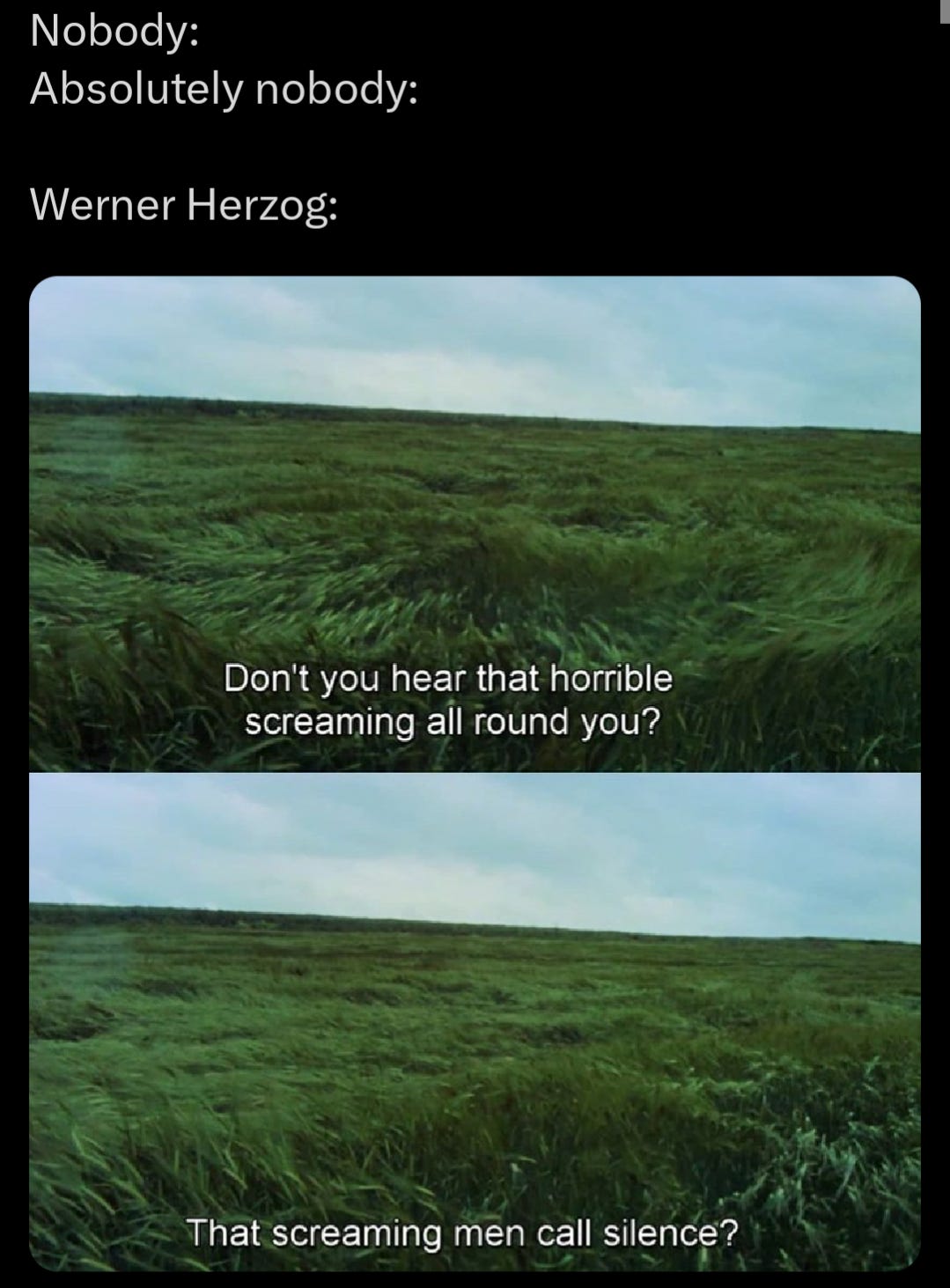This now old meme-form has always struck me as, at the very least, existentially annoying. Allow me to explain, and I promise to root this in something more substantial than my own personal neuroses.
Firstly, and most mildly, this meme-form grinds gears due to its glaring logical fallacy. In attempting to illustrate the idea that “nobody asked for this” the meme creator states “Nobody” followed by a colon, and then empty space.
Clearly when there is already no person present, there will also be no speech accompaniment. Obviously, nobody could ever say anything, even if they wanted to, and the story which the meme-creator is attempting to build feels confused to anyone who imagines the scenario in detail.
Perhaps if the formula read “Everyone: _______,” followed by an image, the loose ends of this linguistic singularity would be a bit less spaghetti, indicating that everyone had the chance but chose not to ask for it due to a lack of desire.
It would even make more sense conceptually to show "No One:” followed by an exact description of what the image holds, giving voice to the No One who asks for this exact thing. No One asked for this. It makes, at least, logical sense. In any case, the wave of disparity only begins to swell here in the ideological zone, still a ways from cresting.
And so we make our way to purpose.
Sense-making aside, and assuming the setup works, what is the endgame here? Let’s imagine someone is showing you their weird art, and within the conversation you employed this attitude. Do you think suggesting that no one asked for their creation would be taken as a form of encouragement? Do you think that person would feel safe, seen, and respected as a person? Would it help to connect with them more?
Of course not. It would hurt. It would feel bad to hear that nobody wants your thing. The problem with this is, when it comes to art and ideas, the most brilliant accomplishments are usually not commissioned, but sprout instead from the land where No One else is even invited. This approach of alienation presumes that said thing was created for the benefit and enjoyment of others or, with even more narcissism, that it was meant to please solely the experiencer. It assumes that entertainment on mass scale, or even resonance with popular perceptions, is some kind of measure to success, to worth.
This way of engagement displays debilitating levels of resting hubris with which the criticizing mind has been indoctrinated, and betrays unexplored depths of personal insecurity. The eyes darting around, checking that the crowd sees the signaling of “Yes, I’m one of you! I don’t like weird stuff either. Please, please accept me.” It suggests that engagement with a niche audience is sad, rather than intimate or even heroic. So what set this all this nuanced criticism off in the first place?
Werner Herzog is a personal hero of mine. He stole a camera to make his first film. He put lives at risk during shoots in the Amazon just to serve his ideas. He has preached time and again that if you want to do something, you just do it. You don’t ask for permission, you don’t wait for a loan, or equipment, or until you’re an expert. You just do it, because you have to. Because the artist is less concerned with how things might land than they are with the raging fire inside of them.
Herzog has stated that making films is the art form of the illiterate, and within that philosophy has created some of the most thoughtful, strange, and challenging films ever put to screen. Even if you haven’t heard his name before, you’ve likely already seen and have a strong opinion about one of his films. For these, and other reasons, I personally consider the man to be a living saint of art.
No one would have ever asked for Grizzly Man, or Even Dwarves Started Small, or Fitzcarraldo. Not because No One wanted them, but because no one excepting Werner could have possibly dreamed them up and actually made them happen. Truly No One wanted them until they existed, and then Somebody certainly did.
This life is not about capital gains, and art even less so. The money spends, and then it’s gone. Our lives spend, and then they’re gone. Only the records remain. The stories. The art.
We can give the people exactly what they want, earn a buck, get a pat on the back, and subsequently become forgotten in the great ring of popular mediocrity in which we have chosen to throw our hats. Or we can search our own hearts for the treasures yearning to be birthed therein, allowing the consequences to be as damned as our strange dreams and ambitions, and take pity on those who sit making memes in lonesome rooms, throwing shade at that which they will never appreciate and cannot possibly understand.


